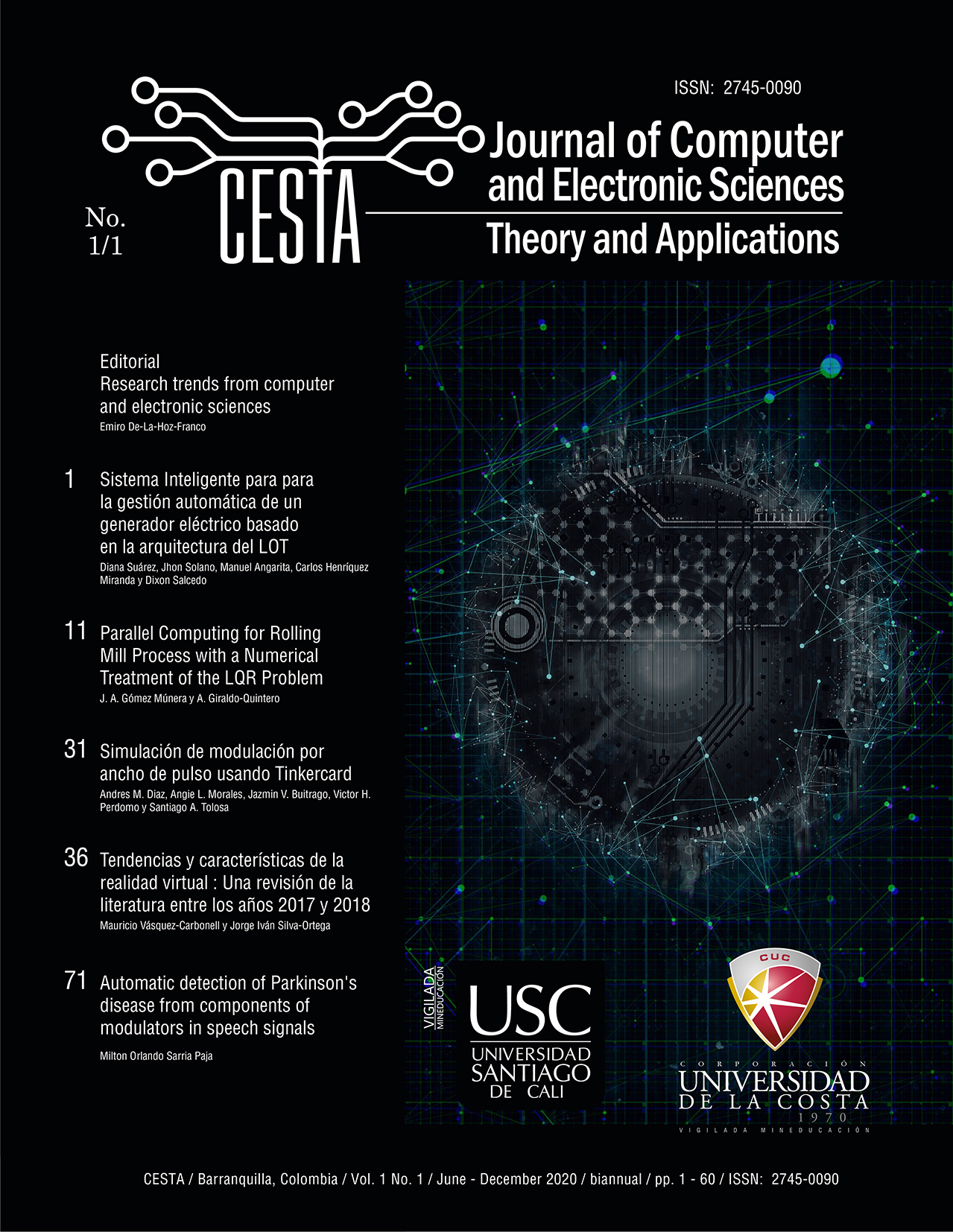Research trends from computer and electronic sciences
DOI:
https://doi.org/10.17981/cesta.01.01.2020.edAbstract
Electronics as a technical and scientific discipline was born in 1904, based on the principles defined by John Ambrose Fleming (inventor of the diode) and André Marie Ampére (founder of electromagnetic theory), its evolution towards current electronics, has largely been possible thanks to the invention of the triode (device capable of converting alternating current into direct current) by Lee De Forest. On the other hand, computer science as born as a scientific discipline in the early 1940s, based on mathematical logic and algorithmic theory, the principles that sustain it go back to the works Gottlob Frege (father of modern mathematical logic) and Andréi Kolmogórov (founder of the theory of algorithm complexity). The complementarity between these two relevant disciplines has made possible the development of a wide diversity of technologies applied to studies in the care of health (e.g. biomechanics, computerized axial tomography and telemedicine) and to space exploration (e.g. communication mobile and GPS, robotics and nanotechnology), among others.
Downloads
Downloads
Published
How to Cite
Issue
Section
License
Los artículos publicados son de exclusiva responsabilidad de sus autores y no reflejan necesariamente las opiniones del comité editorial.
La Revista CESTA respeta los derechos morales de sus autores, los cuales ceden al comité editorial los derechos patrimoniales del material publicado. A su vez, los autores informan que el presente trabajo es inédito y no ha sido publicado anteriormente.
Todos los artículos están bajo una Licencia Creative Commons Atribución-NoComercial-SinDerivadas 4.0 Internacional.



 English
English
 Español (España)
Español (España)






